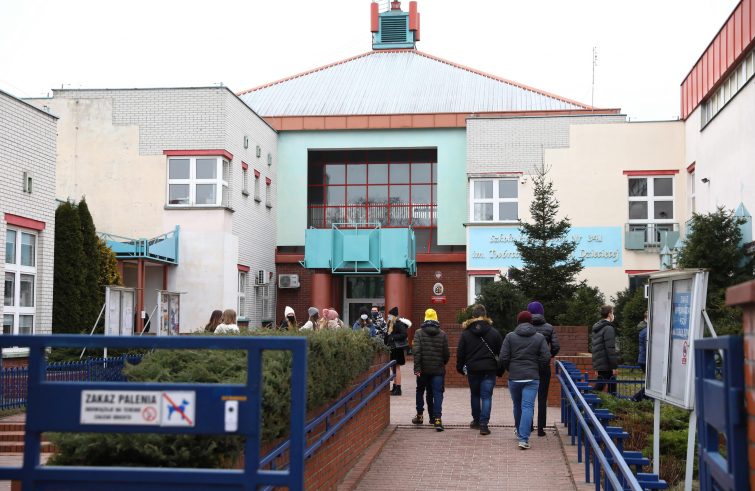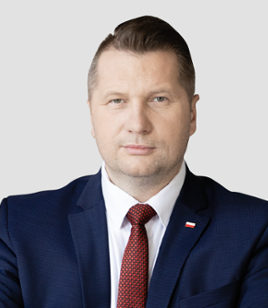
As in all European countries, Poland is considering the reintroduction of distance learning in response to the possibility of a fourth wave of COVID. Only 5% of students in all schools at all educational levels currently follow classes remotely o in mixed mode, i.e. with limited face-to-face learning. More than 81% of headmasters regard the digital exclusion of students as a serious obstacle to their education. Poland’s Education Minister Przemysław Czarnek, 44, who graduated from John Paul II Catholic University in Lublin, does not, however, envisage a massive shift back to distance learning in the coming months. Follows an interview with Minister Czarnek on the contents and guidelines of his administration.
“School syllabuses included an excessive focus on ancient history and history of the Middle Ages, while the contemporary period – from the mid 20th century to the present day – was hardly mentioned at all. Ancient and medieval history are important, but unless young people have a good knowledge of recent history, they will not have the tools to interpret reality. In their own interest, we have therefore decided to include contemporary history in the curriculum of all schools starting from the first year of secondary school.
 Will the new curriculum also include a focus on the European Union, its structures and laws?
Will the new curriculum also include a focus on the European Union, its structures and laws?
Of course! Poland has been a full member of the European Union since May 1, 2004, and we have been part of Europe for 1055 years, since Poland became a Christian country in 966. The reform of the school curricula implemented this year includes a new list of compulsory and optional readings. Students can choose to study “The Roman Triptych”, “Memory and Identity”, “Fides et ratio” and “The Goldsmith’s Shop” by Karol Wojtyla as well as “Notes from Prison” by Card. Stefan Wyszyński. Children in primary school will be introduced to the story of Karol Wojtyla’s childhood. Older pupils will study excerpts of John Paul II’s conversations with André Frossard.
In your opinion, how do these readings contribute to the human and intellectual growth of young Poles?
John Paul II and Stefan Wyszyński were two prominent Poles and the fact that we are a free country today is largely thanks to them. If someone is annoyed by this, it means that they have not understood the Polish soul, they don’t know what it means “to be Polish.” I must emphasise, however, that it is up to the teachers to decide whether to read Pinocchio or Karol Wojtyła, there is no mandatory choice.
Does the new educational syllabus highlight the values of hospitality and tolerance?
Young Poles are very open to the world, just as Poland is open to the world. In my educational programme, the teaching of every subject, from literature to history and religion, is closely connected to Christian values. Christianity commands unselfish love for others, regardless of where they come from, where mercy comes first on the scale of values. All youth education in Poland is rooted in Christian values. Nothing teaches young people the spirit of acceptance and openness to the world like Christianity does.











